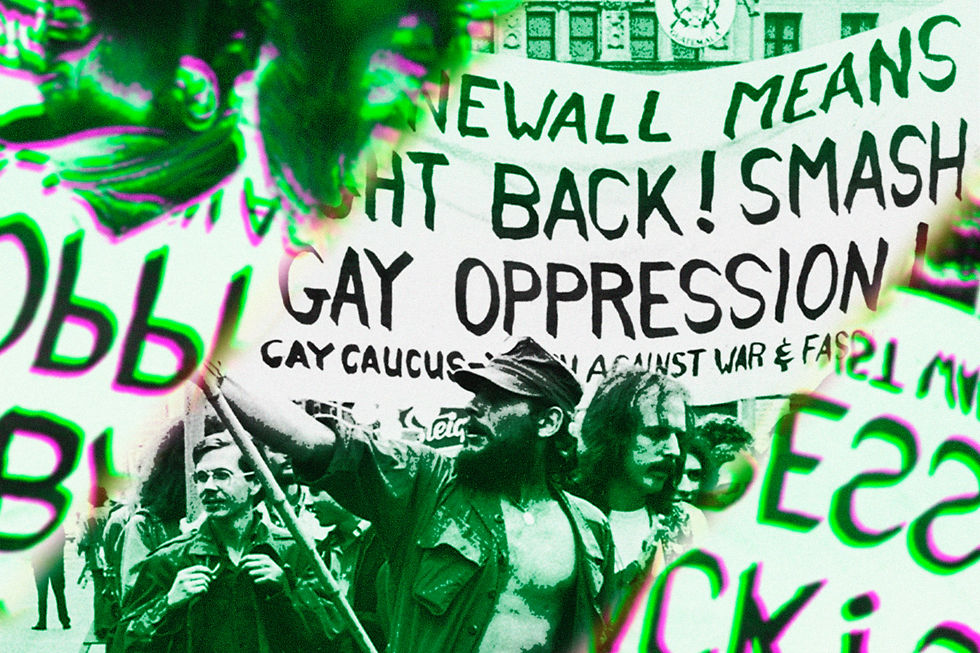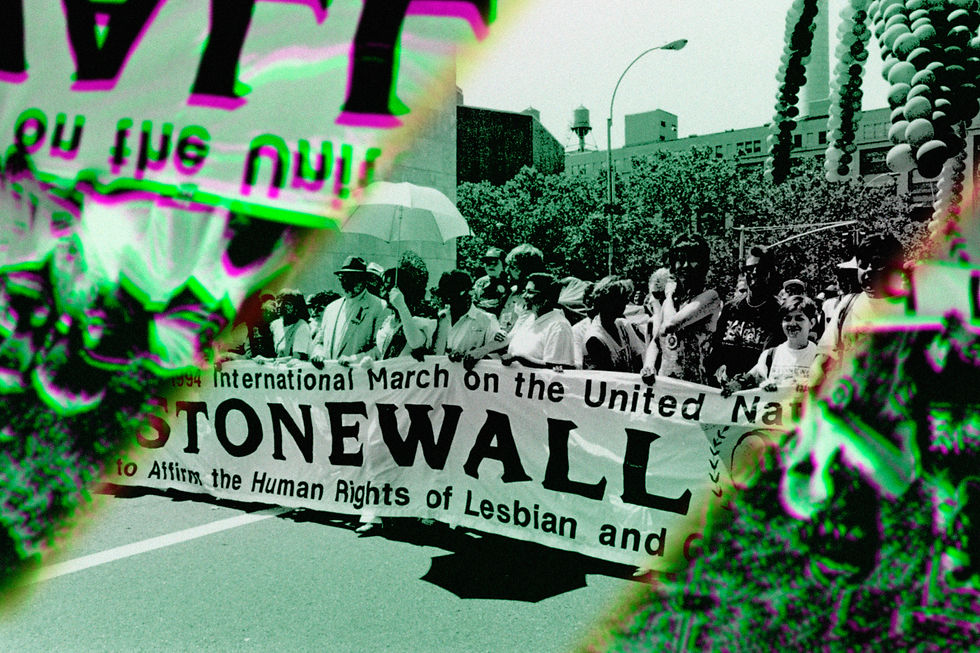My Recollections and Participation in Some LGBTQ+ Movements after Stonewall.
- Eduardo Morales, PhD.

- Jun 17, 2022
- 3 min read
Updated: Aug 23, 2022
By Eduardo Morales, Ph.D.
Association of Lesbian and Gay Psychologists (ALGP) formed in 1973, took the lead in having the American Psychological Association (APA) remove homosexuality as a disorder in1974 supporting the 1973 decision of the American Psychiatric Association. After numerous forums and sessions with fellow psychologists, we worked with APA members to take responsibility for the discrimination and stigma that resulted in noting homosexuality as a mental disorder. The Council of APA generated a statement deploring all public and private discrimination in such areas as employment, housing, public accommodation, and licensing.
Since 1975 the APA called on psychologists to take the lead in removing the stigma of mental illness associated with LGBTQ+ persons, urged the enactment of civil rights legislation at all governmental levels and the repeal of all discriminatory legislation against homosexual acts.

First National Conference of Third World Lesbians and Gays convened in Washington D.C. at Howard University from October 12 to 15, 1979 with over 450 participants attending. The conference made history by addressing invisibility and to boldly assert our leading place in race, sex, sexuality, and working-class movements. Blacks, Chicanos, Native Americans, Asian Americans, Whites, Puerto Ricans, Mexicans, Nicaraguans, and Canadians attended from various organizations. On Sunday Morning of October 14 conference participants marched from Howard University to the site where persons were convening for the National March on Washington for Lesbian and Gay Rights. As we walked through the D.C. streets, we were observed by residents on their way to church that morning as we marched and voiced our chants for LGBTQ+ rights. I was asked to take the front banner of the march as we passed through the local streets, walked in front of the Supreme Court Building where international photographers took pictures of us marching, and then finally arrived at the site where the National March was convening. Luckily, this D.C. march in the streets was without incidents. The organizers of the National March instructed everyone that the National march was to be led by lesbians. There were about 200,000 persons who marched. Inspired by the 1963 march led by Martin Luther King and galvanized by the assassination of Harvey Milk in 1978, the route of the National LGBTQ+ March included various sites of major federal buildings including the White House. The march aimed to ban discrimination based on sexual orientation, urging current President Jimmy Carter to sign a bill to stop all discrimination against gays and lesbians in the military, in federal jobs and in demanding Congress to include sexual orientation in the Civil Rights Act of 1964.

Some of the aims were to repeal of anti-gay legislation as well as the inclusion of family protection laws allowing gay and lesbian parents to receive fair custody trials. For the 1987 National March on Washington various Latinx LGBTQ+ persons provided funds to publish a program announcement for a gathering of Latinx LGBTQ+ persons at this March.
To our surprise over 70 persons from over 13 states and Puerto Rico attended this gathering called El Primer Encuentro de Gais y Lesbianas in a building on Pennsylvania Avenue. We agreed to meet in February of 1988 at UCLA at the Segundo Encuentro to form and establish a national Latinx LGBTQ+ organization. There the group drafted bylaws, elected an interim board of directors, and I proposed the name LLEGO which was an acronym for Latinas/os LEsbian and Gay Organizers. The purpose of LLEGO was to build a national network that would address our concerns locally, statewide, and nationally that would educate and sensitize ourselves and our various communities on issues related to homophobia, sexism, and discrimination. The main office of LLEGO was to be in Washington, D.C. to have access to national legislators. The bylaws created an elected board representing four major regions of the U.S. with four representatives from each of the regions. Through various contracts and grants LLEGO obtained various resources to address HIV/AIDS within the Latinx LGBTQ+ communities. After 17 years LLEGO closed its doors by its Board due to financial and administrative problems. We attempted to restart a National Latinx LGBTQ+ organization in a gathering called Sigamos Adelante: The LGBT Latina/o National Forum in Seattle, Washington. This new national organization was called Unid@s: National Latina/o Lesbian, Gay, Bisexual, & Transgender Human Rights Organization and designated a committee to follow up on the plans created. In 2007 a board was formed for obtaining funding and developing a membership with a press release issued on April 25, 2007. To date this group appears to be inactive. Eduardo Morales, PhD, is of Puerto Rican decent and one of the founders of AGUILAS, where he serves as Executive Director. He is also Professor Emeritus, retired Distinguished Professor of Psychology at Alliant International University, and is the current Past President of the National Latinx Psychological Association.


Comments